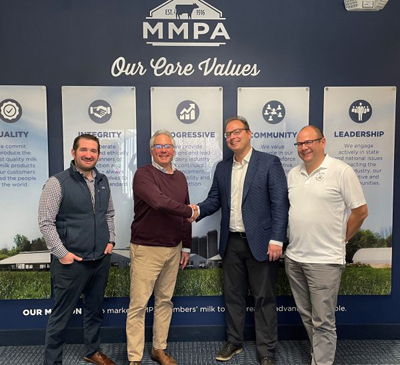Your gas flap may soon have a milk mustache, because Michigan dairy farmers are partnering with a distillery north of the border to convert a sugar byproduct of the ultrafiltering process into ethanol for your car.
The Michigan Milk Producers Association (MMPA) recently announced its partnership with Dairy Distiller, a company based in Ontario, Canada, that produces a milk-based vodka called Vodkow.
The company uses a byproduct of the ultrafiltering process called milk permeate. The material is full of lactose, a type of sugar. Like all other forms of sugar, it can be fed to yeast to make ethanol.
While Dairy Distiller has historically fed that ethanol to Canadian humans, in the form of vodka, it will soon feed it to American vehicles as well. That will be possible thanks to a $41 million plant planned to open in early 2025.
The facility will be located next to an existing MMPA location in Constantine, MI, where 14,000 tonnes of milk permeate are produced per year. The plant will be capable of processing the lactose-rich material into 2.2 million gallons of ethanol annually.
The new Constantine location is being supported by $2.5 million in funding from the Michigan Strategic Fund, and will offset 14,500 tonnes of carbon per year when blended with transportation fuel. That will help reduce the carbon footprint of the Constantine milk processing plant by 5%, the MMPA estimates.
While finding uses for milk byproducts is certainly positive, it is important to note that the dairy industry is very carbon intensive. The American Dairy Association reports the industry accounts for roughly 2% of total U.S. greenhouse gas emissions, or 20% of the agriculture sector's emissions.
Dairy farming in Michigan and Ohio, specifically, have also been linked to the toxic algae blooms currently plaguing Lake Erie, reports the Environmental Working Group. Recent studies have suggested even when ethanol is made from corn, it can be more damaging to the environment than fossil fuels, suggesting the possible environmental benefits of the product are closely linked to how it is sourced.










Abby Andrews